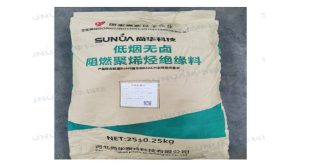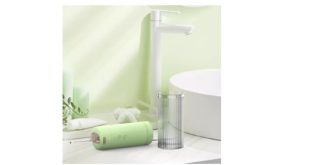Occupational hygiene programs play a vital role in ensuring that workplaces are safe and healthy for workers. These programs involve a range of services, including workplace exposure assessments, industrial hygiene testing, and hazardous material assessments. Occupational hygienists and occupational hygiene consultants are the professionals responsible for designing, implementing, and monitoring these programs. They use their expertise in identifying and controlling workplace hazards that may result in illness or injury to employees.
In this article, we will explore the importance of occupational hygiene programs and how they can foster a healthier work environment. We will also discuss the advantages of working with an occupational hygiene consultant. So whether you are a business owner, manager, or employee – read on to learn more about occupational health and safety programs.
The Role of Occupational Hygienists and Occupational Hygiene Consultants
Occupational hygienists and occupational hygiene consultants work to ensure workplace health and safety services. The roles of occupational hygienists and occupational hygiene consultants can include:
- Identifying and evaluating workplace hazards: Occupational hygienists and consultants use their expertise to identify potential hazards in the workplace, assess the risk of harm posed by these hazards, and recommend measures to control or reduce the risks.
- Developing safety policies: They develop safety policies to protect employees from hazardous conditions. These can include programs for proper protective equipment use, workstation ergonomics, emergency response planning, and more.
- Monitoring compliance: The occupational hygienist or consultant will monitor compliance with safety regulations set by regulatory authorities (e.g., OSHA) as well as internal company safety standards.
- Training employees on health and safety topics: An important part of the job is to ensure that all employees are adequately trained on relevant health and safety topics. This will help ensure that everyone is aware of the potential risks and how to stay safe in the workplace.
Advantages of Working with an Occupational Hygiene Consultant
Working with an occupational hygiene consultant has several advantages for businesses. These professionals bring specialized knowledge and expertise in identifying, conducting industrial hygiene testing, and managing workplace hazards that pose a risk to the health and safety of employees. Here are some advantages of working with an occupational hygiene consultant:
- Independent and Objective Assessment: An occupational hygiene consultant is an independent expert who can provide an objective assessment of the workplace environment. This ensures that the assessment is unbiased and that any potential hazards are identified and managed effectively.
- Cost-Effective: Hiring an occupational hygiene consultant can be a cost-effective solution for businesses that do not have the resources to hire a full-time occupational hygienist. A consultant can be hired on a contract basis to provide their services when needed, thus reducing overhead costs.
- Specialized Expertise: Occupational hygiene consultants have specialized knowledge and skills in assessing and managing workplace hazards. They stay up-to-date with the latest regulations and occupational health and safety consulting, which allows them to provide the most effective solutions to mitigate potential hazards.
- Risk Management: An occupational hygiene consultant can assist a business in identifying and managing risks associated with exposure to hazardous substances, noise, radiation, and other workplace hazards. By managing these risks, a business can minimize the likelihood of accidents and reduce their liability risks.
- Compliance: Occupational hygiene consultants can help businesses stay compliant with regulatory agencies’ occupational health and safety standards. This ensures that the business is providing a safe and healthy environment for their employees, reducing the risks of legal action and fines.
The Importance of Workplace Exposure Assessments in Preventing Illness and Injury

Workplace exposure assessments play a crucial role in preventing illness and injury in employees. Exposure to hazardous substances, including chemicals, dust, fumes, and biological agents, can cause a range of health problems, from irritation and allergic reactions to long-term chronic conditions such as cancer and respiratory disease.
Here are some reasons why workplace exposure assessments are essential to preventing illness and injury:
- Identifying Potential Exposure Risks: A workplace exposure assessment can help identify potential exposure risks associated with different job roles or tasks. This information can be used to develop control measures to minimize or eliminate exposure risks and protect workers.
- Evaluating Exposure Levels: Exposure assessments involve monitoring the air quality and other environmental factors to evaluate the levels of exposure to hazardous substances. This information can be used to reduce exposure levels to acceptable levels and prevent adverse health outcomes. By conducting hazardous material assessments, businesses can also identify and replace toxic materials with safer alternatives.
- Planning Effective Control Measures: Once the exposure risks and levels have been identified, the business can put in place effective control measures to manage or eliminate workplace hazards. This may include implementing engineering controls, such as ventilation and enclosure systems, administrative controls such as training and supervision, and the use of personal protective equipment (PPE).
- Protecting Workers’ Health: Workplace exposure assessments are an essential part of protecting workers’ health and preventing illness and injury. By accurately assessing exposure risks and levels, the business can take appropriate measures to ensure that workers are not exposed to harmful substances and conditions.
Why Occupational Hygienists Are Essential to a Healthy Workplace
Occupational hygienists are essential to promoting a healthy work environment because they specialize in identifying and managing potential hazards in workplaces. Workplace hazards can include exposure to chemicals, noise, radiation, biological hazards, and physical hazards, among others. These hazards can lead to various injuries and illnesses that can be debilitating or even fatal in some cases. Occupational hygienists use their knowledge and expertise to evaluate working conditions, identify potential hazards, and recommend appropriate control measures to minimize or eliminate occupational hazards.
Furthermore, occupational hygienists play an essential role in ensuring regulatory compliance by keeping up to date with the ever-changing regulations for workplace safety standards. They work to help businesses meet the legal requirements and standards set by regulatory authorities, which is necessary to prevent the potential risk of legal action being taken against the company in the case of an accident or incident.
Overall, occupational hygienists help create a safer work environment for employees, which can lead to better health outcomes, increased productivity, and a positive corporate culture.





